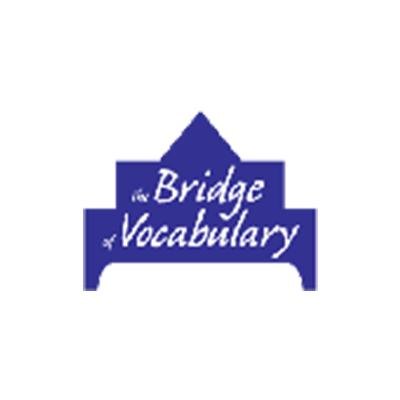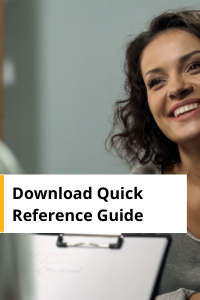Judy K. Montgomery, PhD
Overview:Addressing the need for research-based vocabulary intervention
Age Range:pre-school through adult
RTI Tiers:RTI Levels 1, 2 and 3
The Bridge of Vocabulary offers the only explicit vocabulary intervention program tied to evidence-based research and curriculum standards and developed for both general and special educators.
This sophisticated tool enables you to meet guidelines set by the No Child Left Behind Act of 2001 (NCLB) and the Individuals with Disabilities Education Act of 2004 (IDEA)—which require that teachers and specialists use evidence-based teaching practices to ensure their students receive high-quality instruction and intervention. Brief, focused, and flexible, The Bridge of Vocabulary is ideally suited for all three tiers of the RtI model.
 This highly relevant resource directly links specific vocabulary intervention with a research-based strategy and presents a systematic, intensive approach to help you foster vocabulary and language growth. Written for multiple professional disciplines, The Bridge of Vocabulary facilitates collaboration among SLPs, classroom teachers, reading teachers, and other education professionals—an important evidence-based practice.
This highly relevant resource directly links specific vocabulary intervention with a research-based strategy and presents a systematic, intensive approach to help you foster vocabulary and language growth. Written for multiple professional disciplines, The Bridge of Vocabulary facilitates collaboration among SLPs, classroom teachers, reading teachers, and other education professionals—an important evidence-based practice.
Useful with a variety of student populations
The Bridge of Vocabulary is designed to supply educators with the resources they need to create linguistic environments that will allow all students to succeed as listeners, speakers, readers, and writers. The program can be used with:
- ELL students
- Students with language and learning disabilities
- Students with complex communication disabilities
- Typical elementary and secondary students, including low and high achievers
A framework for success
This program applies five practices shown to be essential in teaching vocabulary skills to general and special education students:
- Engage students with a wide selection of books—and do it often.
- Enjoy word games and word play
- Teach word learning strategies
- Be explicit
- Be redundant
Relying on proven techniques
Reviewed and tested by classroom teachers and SLPs, The Bridge of Vocabulary furnishes a curriculum standard with explicit teaching instructions as well as guided and independent practice activities. This easy-to-use tool employs strategies grounded in solid research, such as activities that:
- Help specialists, teachers, and parents systematically plan explicit word encounters
- Encourage fast mapping
- Provide slow mappers with extended exposure to vocabulary
- Demonstrate phonotactic probability and neighborhood density, two important factors in vocabulary growth
- Incorporate student-friendly definitions that use spoken vocabulary words instead of reading vocabulary words
Comprehensive content
About 100 activities across five age ranges (preschool, lower elementary, upper elementary, middle school/junior high, high school/adult) are printed in the book. The CD offers these activities and many more, including guided practice, independent practice, word cards, and pictures cards. Both the book and the CD provide a table of contents for faster searching.
This valuable resource targets a full range of vocabulary skills and concepts, including:

- Listening, speaking, reading, and writing
- Language processing of nouns, verbs, adjectives, adverbs, and prepositions
- Antonyms and synonyms
- Categorization
- Word parts (prefixes, suffixes, and roots)
- Rhyming
- Compounds
- Onomatopoeia
- Meaning and usage
- Storytelling
- Word play
Book Activity Sample
View a book activity sample.
Read an interview with author Judy Montgomery at SpeechPathology.com.
Materials
Sample: Guided Practice Activity 1
Questions
Frequently asked questions follow. Click on a question to see the response.
Two-Minute Talks with Dr. Judy Montgomery
- Which words should I teach?
- What makes a word “easy” or “hard” to learn?
- Can I use these vocabulary-learning tasks for children at different ages than suggested in the BOV book?
- Should I read to students who cannot read the texts at their age level?
- I like your ideas, but how do I activate prior knowledge for vocabulary therapy when students have very limited life experiences?





